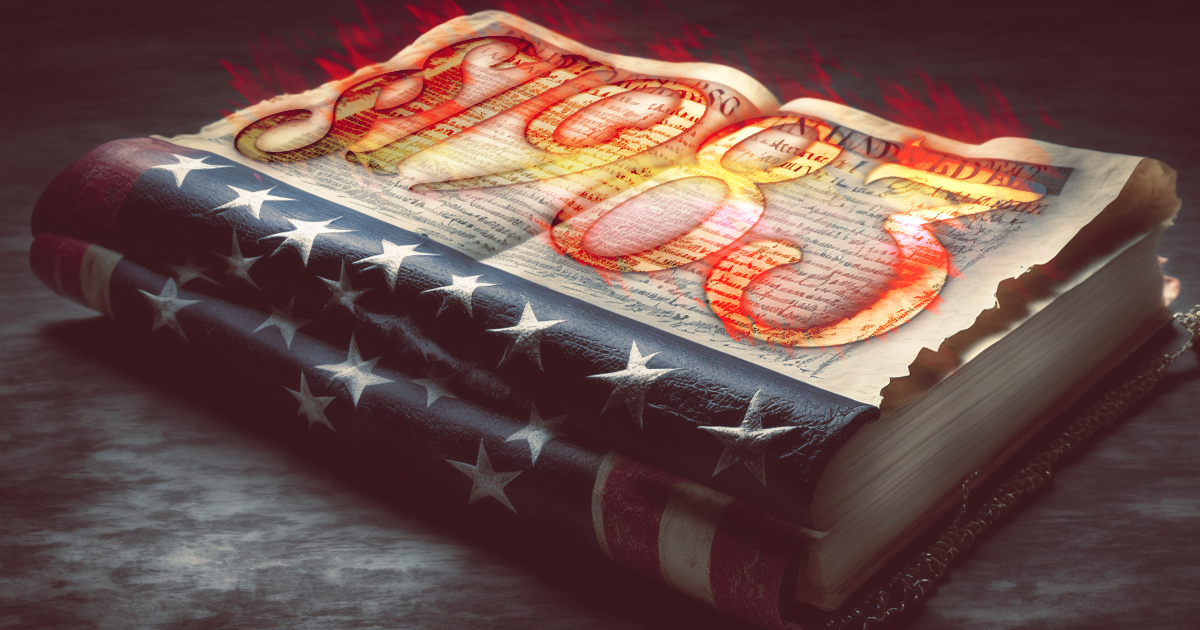Often referred to as “Section 1983” in regard to legal cases – the Civil Rights Act of 1871 grants citizens the right to legally challenge civil rights violations through a formal lawsuit. This legal tool is used when state officials or local governments act in an unconstitutional manner, allowing individuals access to monetary damages and injunctive relief for their grievances. 42 U.S.C §1983 provides essential protection against oppressive governmental behavior that violates basic human rights enshrined within our Constitution and federal law alike – ensuring that all have equal opportunity under the law regardless of race or creed.
Section 1983 provides a legal recourse for individuals whose rights, as outlined in the U.S. Constitution or federal statutes, are violated by government actors who abuse their power and act under “color of law”. Though it can apply to many scenarios that may not involve violence, this type of lawsuit often arises when an individual experiences excessive police force or has suffered other forms of physical harm inflicted upon them by someone they reasonably believe acted on behalf of a state authority. Courts have found that such wrongful conduct must meet certain standards before being considered “under color” and thus be eligible for Section 1983 proceedings seeking justice for victims injured due to civil rights violations.
Police misconduct is a form of corruption in which officers abuse their power, breaking the law they are sworn to uphold. In such cases, those responsible for upholding justice become perpetrators of injustice through excessive force or other forms of malpractice – leading to violations of an individual’s civil rights.
When determining whether a person’s federal rights have been violated, judges can weigh several criteria to decide if the officer was operating under “color of law”. These include assessing if they were on duty, wearing police attire, using official tools such as squad cars or handcuffs, claiming authority with their badge, and/or making arrests. If a victim feels they have been wronged by law enforcement, legal action can be taken against the officer and their employing entity. This could range from suing a police department to an individual supervisor for misconduct or negligence.
When filing a Section 1983 action, victims must demonstrate that their civil or constitutional rights were violated by the police. These claims can include excessive force, improper arrest procedures, illegal searches, wrongful arrest, and despicable acts such as racial profiling during traffic stops, stop-and-frisks, and arrests. All these violations are subject to legal damages if proven within court of law.
Miranda warnings are a fundamental tool in our criminal justice system, however, the absence of stating Miranda rights does not rise to the level of a Section 1983 constitutional violation – and alone is not a sufficient reason for filing suit under this framework.
Section 1983 of the United States Code does not only hold police officers accountable for civil rights violations. Government agencies, state officials and other public employees can face legal repercussions when they fail to protect constitutional liberties. If a jailor mistreats an inmate or if a school district is not upholding its educational obligations – Section 1983 is there to defend citizens’ basic human rights.
In 1971, the U.S Supreme Court established a legal means of seeking redress in cases where federal government officials were accused of wrongdoing with their positions known as Bivens actions; these are analogous to Section 1983 lawsuits but target individuals employed by the national—not state or local—government instead. An example would be suing an agent from the United States Border Patrol under this kind of claim versus pursuing action against a city police officer via Section 1983 process. (Bivens v. Six Unknown Named Agents, 403 U.S. 388 – a 1971 case in which the US Supreme Court ruled that an implied cause of action existed for an individual whose Fourth Amendment protection against unreasonable search and seizures had been violated by the Federal Bureau of Narcotics.)
Government officials, such as those in law enforcement roles, may be shielded from legal ramifications due to the doctrine of qualified immunity. This protection is offered when an individual’s actions do not reach a level in which it can clearly be established they knowingly violated constitutional rights. Police officers are faced with an immense responsibility to protect and serve under harrowing conditions. Unfortunately, the shield of qualified immunity is so stringent that it can sometimes impede victims from seeking justice by way of recompense for damages they have suffered at the hands of law enforcement personnel. Qualified immunity undeniably serves its purpose in allowing police a measure of protection while performing their duties; however, this same assurance must not prevent those wronged by authority figures from receiving just due process or compensation as needed.
Every individual who unlawfully violates the constitutional rights or privileges of another person under a law, regulation, or custom can be held accountable through legal action. This includes obtaining injunctive relief against judicial officers if they acted in their capacity as judge and either violated a declaratory decree or when such decrees were not available. Section 1983 opened a new avenue of relief for individuals whose constitutional rights had been infringed by persons acting under the authority of state governments. With this law, those affected could seek monetary damages instead of relying on court injunctions to remedy the violations. This clarification provided more effective protection against abuses that would otherwise be allowed with impunity.
Section 1983 of the 1871 Civil Rights Act is a powerful, legal tool used to fight for and protect civil liberties
It provides individuals with an avenue to take action when their federally protected rights are infringed upon, such as those outlined in the First Amendment or Fourteenth Amendment’s Due Process Clause and Equal Protection Clause. Moreover, this statute also serves as protection against discrimination related to public sector employment based on race, sex, color, national origin, gender identity/expression, or religion.
In some jurisdictions, private employers can be held liable for violations of § 1983 in a variety of ways, even when not directly acting under state or federal authority. For example, if private security companies are hired by police to maintain order during an event and their actions violate the First Amendment rights of participants, they could face legal action on these grounds.
If legal action is on your mind, it may be time to speak with a lawyer. An attorney knowledgeable in civil rights law, personal injury, and criminal defense can evaluate the validity of any potential lawsuits and detail who might become involved should you decide to move forward. In addition, they are aware of the possible defenses that could qualify for immunity from the damages being sought.
Suffering a civil rights violation can be an incredibly traumatic experience that may cause tangible and intangible losses. Compensatory damages, when awarded in Section 1983 lawsuits, help to compensate victims for such loss by placing monetary value on hospital bills, property damage, or income lost due to the injury caused – as well as the emotional distress endured from the incident. In extreme cases of misconduct where actual harm is difficult to determine, authorities are able to award nominal damages designed not only to recognize hardships – but to also deter future similar instances from taking place. Punitive damages have been used judicially in order to send clear messages regarding unacceptable behavior while providing compensation for potentially recoverable expenses associated with any suffering experienced by those who have had their rights violated under federal law.
 Flourishing as a society begins with creating an environment where everyone can succeed – regardless of their identity or background. In order to accomplish this, it is essential that every agency addresses issues surrounding discrimination and civil rights head-on by instituting strong diversity initiatives. Recent legal action has exemplified the need for organizations to review their programs in greater detail – as only then will our collective success be ensured through mutual understanding and tolerance within our communities.
Flourishing as a society begins with creating an environment where everyone can succeed – regardless of their identity or background. In order to accomplish this, it is essential that every agency addresses issues surrounding discrimination and civil rights head-on by instituting strong diversity initiatives. Recent legal action has exemplified the need for organizations to review their programs in greater detail – as only then will our collective success be ensured through mutual understanding and tolerance within our communities.
Over the years, The Floyd Law Firm has developed ongoing relationships with many of the clients who have come to us for assistance with various legal concerns. We stand against abuse of any kind, and we will stand with you to help fight it. If you are a victim of, or strongly suspect that a deprivation of rights has occurred or is occurring to someone else – relay your concerns to the local authorities. Keep detailed notes, and contact us for information about the legal assistance that you may need.
The Floyd Law Firm PC has experienced attorneys committed to the practice of law. We continue to pay close attention to any changes in legislation that affect individuals and families as these matters can redefine the most personal and important parts of your life. We will help you plan legal action that is most appropriate for your situation and for the circumstances affecting you. You have legal protections and options available to seek justice.
Attorney T. Jarrett Bouchette is a skilled defense attorney, a trial lawyer, and shareholder in the Floyd Law Firm PC. His experience is broad-based and includes bench and jury trials in both civil and criminal court. He routinely handles civil rights cases involving wrongful arrest, excessive force, and claims arising out of § 1983 U.S.C. Mr. Bouchette also currently serves as a board member of the South Carolina Association of Criminal Defense Lawyers (SCACDL) and is a member of the National College for DUI Defense. You and your loved ones will be able to rest easy knowing that you have trusted legal support from a knowledgeable expert who will stand with you to fight discrimination or abuse.
Learn More
Title 42 of the United States Code – Wikipedia
If you have been Wrongfully Arrested in South Carolina
When car troubles turn into an arrest: 4th Circuit rules in Wingate v. Fuller





